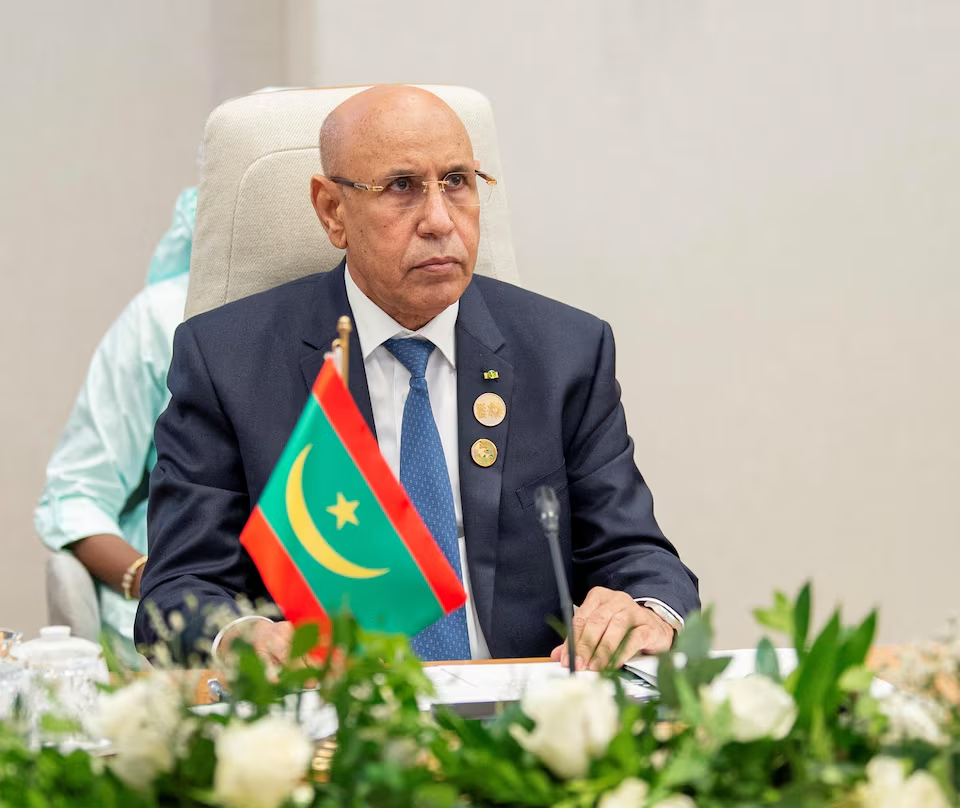Mauritania’s President Mohamed Ould Ghazouani has promised to accelerate investments to spur an energy and mining boom as he takes on six challengers in the June 29 presidential election.
Increased investments in energy and mining could boost Mauritania’s economy and solidify the 67-year-old former army chief’s grip at the helm of the soon-to-be gas producer.
Widely expected to win due to the ruling party’s dominance in the West African desert nation, Ghazouani faces an opposition field that includes anti-slavery activist Biram Dah Abeid, who came second in the 2019 election with over 18% of the vote.
The iron ore, gold, and copper producer is on track to become a gas producer by the end of the year with the start of production at the BP (BP.L), opens new tab-operated Greater Tortue Ahmeyin (GTA) offshore gas project that spans Mauritania and Senegal.
Mauritania, which holds a 7% stake in the GTA project, is also in the process of finding developers for its BirAllah offshore gas field, which is estimated to contain nearly 60 trillion cubic feet of gas.
Ghazouani has promised a gas-fired power plant from the GTA, while investing in renewable energy and expanding gold, uranium, and iron ore mining if re-elected.
Other candidates in the election include lawyer Id Mohameden M’Bareck, economist Mohamed Lemine El Mourtaji El Wafi, neurosurgeon Otouma Soumaré and Hamadi Sidi El Mokhtar of the Tewassoul party.
Despite growth prospects, Mauritania, four times the size of the United Kingdom and home to fewer than 5 million people, suffers from widespread poverty and has been dealing with an influx of tens of thousands of people from neighbouring Mali.
Kenya’s shilling weakened on Thursday and Friday as markets awaited the outcome of protests against a now-shelved tax increase plan.
As a transit route for migrants heading for Europe, the EU has promised more funds to help Mauritania curb irregular migration.
Abeid is challenging Ghazouani on his human rights record and the marginalisation of Mauritania’s Black African population.
Despite slavery being abolished in 1981 and criminalised in 2007, forms of slavery persist in some parts of the country, according to a 2023 UN report.
Tens of thousands of Black Mauritanians still live as domestic slaves, rights groups say, usually to lighter-skinned masters of Arab or Berber descent.
RELATIVE STABILITY
Ghazouani has presided over a period of relative stability since 2019, as Mauritania’s Sahel neighbours, including Mali, struggle with Islamist insurgencies that have led to military coups. Mauritania has not recorded a militant attack on its soil in recent years.
“Mauritania has a more professional army with an effective presence on the ground,” said Ulf Laessing, head of the Sahel programme at the Konrad Adenauer Foundation.
Mauritania has remained a Western ally in the fight against militants in the region, accepting help from countries such as France. In contrast, Western powers have been kicked out of junta-led Mali, Burkina Faso and Niger, which have all turned to Russia for military support.
On the campaign trail, Ghazouani, who currently chairs the African Union, has promised to manage militant threats.
The International Monetary Fund projects economic growth this year at 4.3% up from 3.4% in 2023, but warns that delays in the GTA project could worsen the country’s medium-term debt profile.
For the country’s 2 million registered voters, key issues include equitable distribution of mineral wealth and tackling corruption.
“Mauritania needs decentralized management which promotes each of the 15 regions of the country,” said civil society activist Sidha Mint Yenge.
For young people, access to jobs is a priority, said 23-year-old student Hawa Boubacar Traore.
“These elections are an opportunity for young people to show civic commitment with a demand for transparency,” she said.
